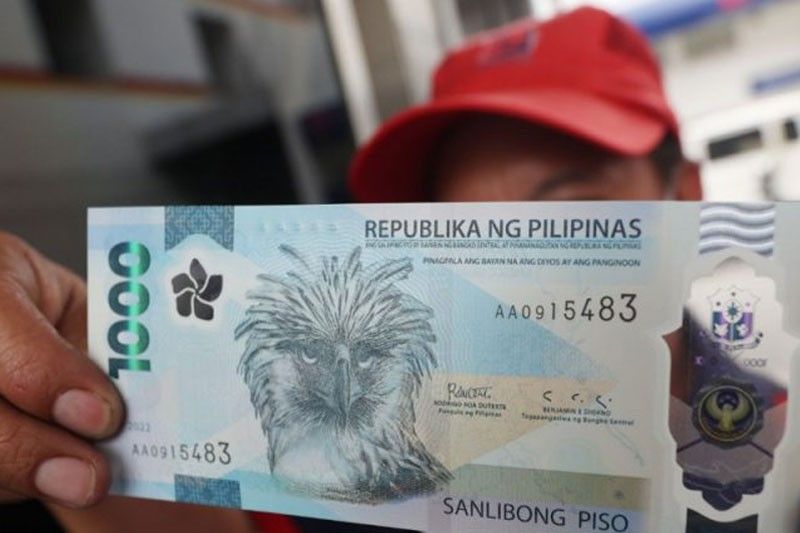To abaca or not? Questions hound BSP's switch to polymer banknotes

MANILA, Philippines — Questions surrounding the economic viability and sustainability of the new polymer banknotes popped up in a Senate committee hearing on Wednesday.
The Bangko Sentral ng Pilipinas is planning to phase out the current iteration of banknotes in circulation. The polymer banknote, which debuted in April, will take its place.
The current banknotes are composed of 80% cotton and 20% abaca.
Stakeholders hailing from the abaca industry found common ground to question the decision of the BSP, which defended the switch in the same hearing.
RELATED: Farmers’ group to BSP: Stop issuing polymer bills
Aurora Peralta, executive director of the Association of Abaca Pulp Manufacturers Inc, said abaca is part of the country’s heritage. Abaca is one of the country’s top exports.
“We implore the BSP to continue using abaca in our banknotes,” she said.
Sustainability issues raised
As it is, the Fiber Industry Development Authority (PhilFida) said that the Philippines has been the world’s source of abaca fiber for the past 50 years, supplying more than 85% of global needs.
The shift would entail discarding the natural materials used for the cotton-based banknotes in favor of the non-biodegradable banknotes already adopted by other countries.
Once polymer banknotes are deemed unusable, it would need to be shredded into pellets before its recycled. These, in turn, become microplastics, considered one of the worst polluters of oceans everywhere.
Aside from the environmental sustainability since the BSP will import plastics in the production process, considerable opposition to the BSP’s decision hounds their move to switch. These include the speed with which these new banknotes could be replicated for fraudulent use, banks needing to switch automated teller machines, and even hygiene, as Peralta cited studies that the SARS-CoV-2 virus would linger on plastic-based notes.
RELATED: BSP says folded polymer banknotes still valid for payment
“We would need to spend dollars to import plastics. What will be spent for abaca farming will eventually find its way back to the economy,” Peralta said. “We don’t have that much money , why spend money for importing plastics and give these jobs to other countries?”
The PhilFida cited instances that polymer notes were counterfeited, as was seen in Romania in 2020. The Romanian government managed to nab the forger but was able to produce the best counterfeit currencies in the European country’s history.
The decision to scrap the use of abaca in the current circulation of banknotes could leave a sizeable impact on the industry. For context, the BSP uses 1,000 to 1,800 metric tons of abaca fiber, valued at $10.8 million, for the production of the local currency. The industry has been supplying BSP’s printing requirements since 2000.
'Backed by studies'
To its credit, the BSP defended the switch, acknowledging that the polymer banknotes are not biodegradable and they consulted internationally peer-reviewed studies to back their decision.
The BSP said expenses related to the printing of the Philippine peso could be reduced by 40-60% by switching to polymer-based notes. According to the central bank, the share of the estimated abaca content in the local unit to total volume of abaca fiber production in 2020 amounted to an estimated 2%.
The BSP projects that their current circulation test of 500 million pieces of the polymer P1,000 bills will affect 0.2-0.4% of abaca farming jobs and will impact up to 0.2% of abaca exports. For one, the country supplies 2,000 metric tons of abaca fiber to Japan for its currency printing needs since 1968.
Likewise, BSP deputy governor Mamerto Tangonan said they’ve been in touch with Philippine banks to allay concerns on the switch. As it turns out, ATMs would only require recalibration, considering more than 2,000 ATMs nationwide are already dispensing the polymer banknotes.
“That’s why we’re putting it into circulation tests so we can determine based on use under Philippine conditions,” he said.
- Latest
- Trending




























